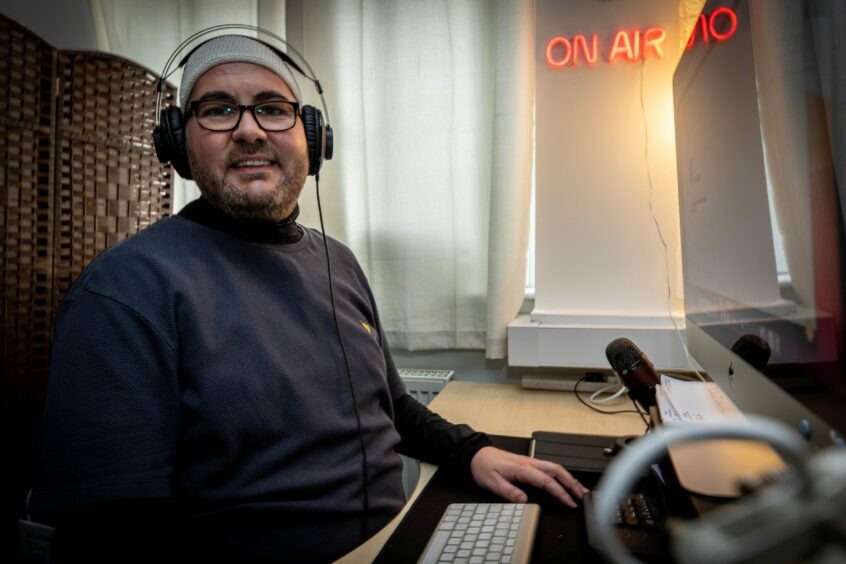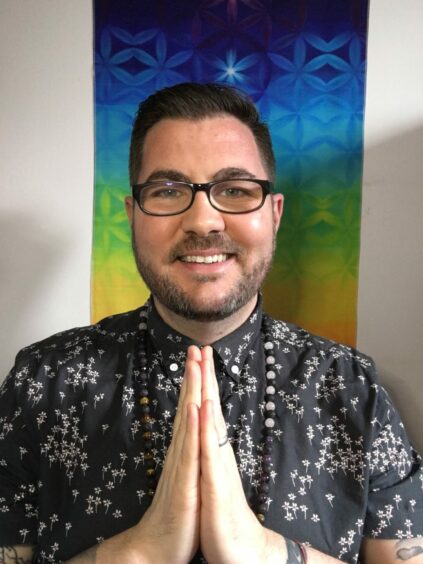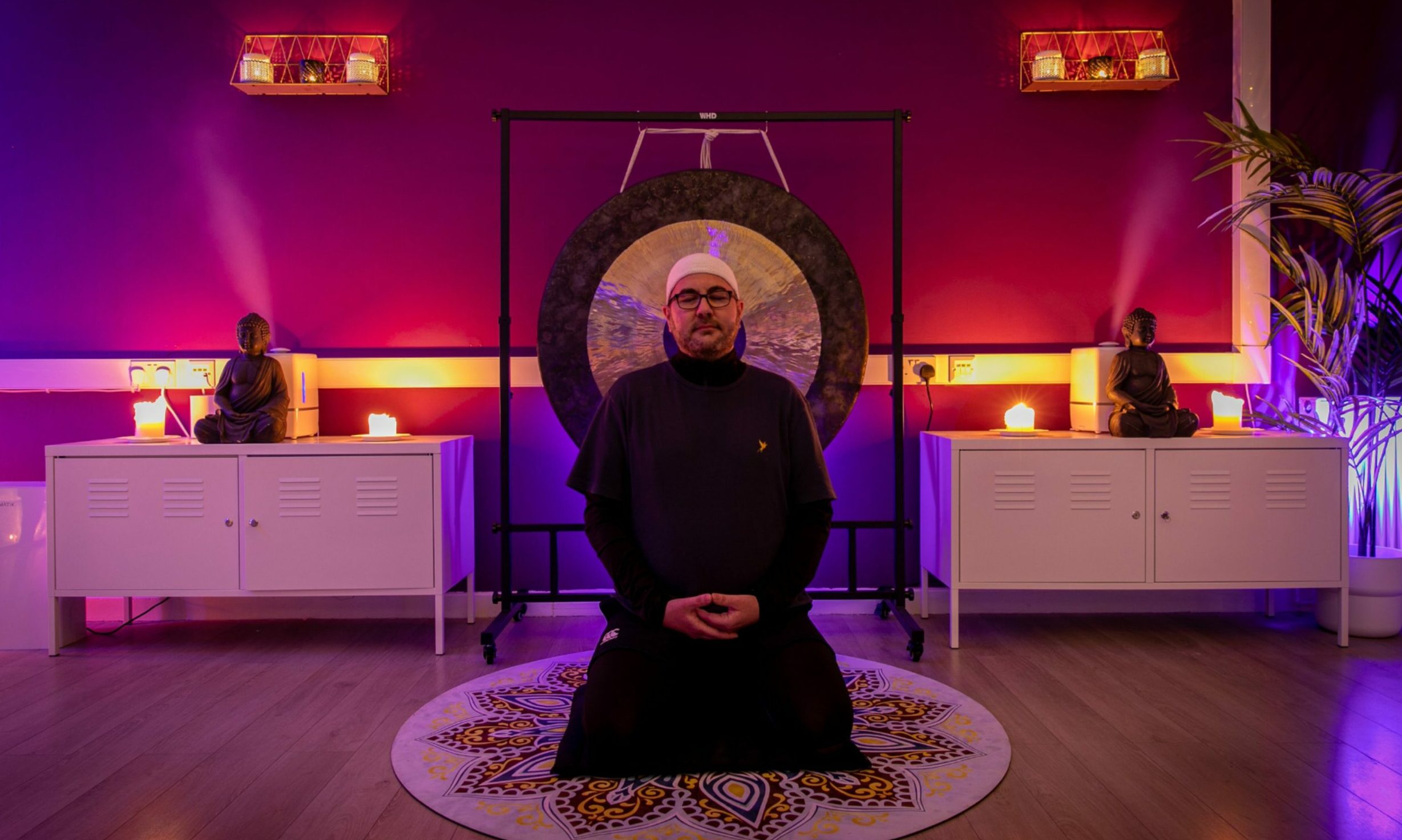No products in the cart.
Healing
Kirkcaldy man Scott makes use of brainwaves to beat insomnia
Kirkcaldy man Scott Hutchison-McDade suffered from insomnia for many years until he discovered the power of music.
Through his wellness training, he discovered by using beats and brainwaves he was able to ditch the sleeping pills.
As part of our series on sleep, he tells us how sounds can help you get a better rest too.
Scott tells of the power of sound. Image: Scott Hutchison-McDade.
Scott, from Kirkcaldy, is the founder of the Centre For Positive Change in the town, as well as Wellbeing Radio.
He is a leading yoga and spiritual teacher, with a deep-rooted passion for all things wellbeing.
Yoga and wellness helped him with his life challenges after he struggled with mental health issues from an early age.
How Scott beat insomnia
He says his training was a “pivotal moment” in his life.
He explains: “I suffered from chronic anxiety and insomnia for a large part of my adult life.
“Now I use mindful yogic movement and music to achieve deeper states of relaxation. And a night of sleep instead of prescribed sleeping tablets.
“Harnessing the power of sound current can be a complete game-changer for our sleep patterns and for promoting feelings of deep relaxation.”
How does sound and beats help?
You might have noticed that certain types of relaxing music – such as the music in spas – give you a feeling of wellbeing.
Scott explains it’s because music and sound takes us from a state of ‘doing’ to a state of ‘being.’

Scott explains how beats can influence a good sleep. Image: Scott Hutchison-McDade.
“There are different tones and beats that can be used to help further expand our feelings of general wellbeing.
“We can also use them to directly target insomnia and poor sleep.”
Which brainwaves link to sleep?
Scott explains our brain works in five different brainwave states.
The brainwave states are associated with types of tasks or mental states including sleep or meditation:
- Gamma waves – heightened perception, learning, problem solving.
- Beta waves – awake, aware, conscious, excited
- Alpha waves – physically and mentally relaxed
- Theta waves – deep meditation, dreams and reduced consciousness
- Delta waves – dreamless sleep, loss of bodily awareness.
By using something called binaural beats we can influence our brain to produce a certain brainwave.
What are binaural beats?
In binaural beats, a slightly different frequency is played in each ear through headphones.
The brain then automatically finds the middle ground and produces the corresponding brainwave.
This change of brainwave state is temporary and returns to normal once the headphones are removed and the music is stopped.
“Binaural beats can be layered into musical compositions and can be very melodic and pleasing to the ears,” Scott adds.

Using the beats as part of a meditation can help. Image: Scott Hutchison-McDade.
“They are often used in recorded meditations to improve the person’s listening experience.”
How can they help me sleep?
It’s all about choosing a frequency that influences the brain to produce theta or delta waves.
“This can make falling asleep and having a restorative sleep much easier to achieve,” Scott adds.
Where can I try them?
There’s a range of playlists and music available featuring Binaural Beats on Spotify or YouTube.
You can also have a listen to Scott’s 61 Points of Light sound journey here.
Scott also offers the chance to try it on his free Centre For Positive Change app.
He adds: “It has different guided meditations with binaural beats for those who would like to try it.”
Already a subscriber? Sign in
[Kirkcaldy man Scott uses brainwaves to beat insomnia]
[[text]]
Close

